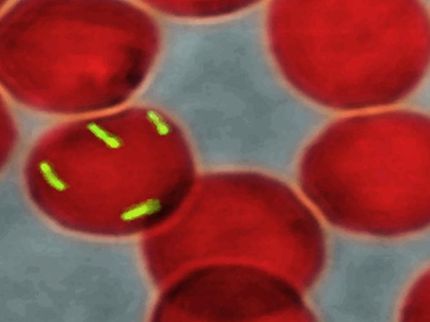Frozen chemistry controls bacterial infections
Chemists and molecular biologists have made an unexpected discovery in infection biology. The researchers can now show that two proteins that bind to one another slow down a chemical reaction central to the course of the disease in the bacteria Yersinia pseudotuberculosis.

Pezibear; pixabay.com; CC0
“The discovery paves way for new insights in the regulation of bacterial virulence. The results have given us a new opportunity to study the pathogenic ability in bacteria,” says Magnus Wolf-Watz, researcher at the Department of Chemistry at Umeå University, who led the study together with Hans Wolf-Watz, professor at the Department of Molecular Biology.
Yersinia pseudotuberculosis and many similar bacteria infect humans by injecting toxins, so-called effector proteins, through a needle-like organelle called injectisome. Previous research has already shown that the protein YscU plays an important part in the regulation of effector protein transportation. YscU is unique in its ability to cleave itself in two parts, as a consequence, one of these parts is then transported out through the injectisome.
By combining biological experiments with studies on atomic level, the research team discovered that another protein, YscP, binds to YscU and regulates its self-cleaving abilities. When the proteins bound to one another, the speed of the self-cleaving was greatly reduced.
“The chemical process behind the self-cleaving was cooled down by the interaction and was hence slowed down. The result is a good example of how biology and chemistry nearly always go hand in hand and is a huge step forward. This gives us new opportunities to study the regulation of the course of diseases,” says Hans Wolf-Watz.
The studies on atomic level were conducted using magnetic resonance spectroscopy at the Department of Chemistry at the NMR for Life platform, which is a national infrastructure for NMR in Sweden.
“The initial investment to fund an NMR instrument that the Kempe Foundations facilitated paved way for further funding from both the Wallenberg Foundations and SciLifeLab. Also, the protein expertise platform in our labs was of crucial importance for undertaking the research project,” says Magnus Wolf-Watz.
Original publication
Original publication
Oanh Ho, Per Rogne, Tomas Edgren, Hans Wolf-Watz, Frédéric H. Login and Magnus Wolf-Watz; "Characterization of the Ruler Protein Interaction Interface on the Substrate Specificity Switch Protein in the Yersinia Type III Secretion System"; JBC; 2017
Topics
Organizations
Other news from the department science

Get the life science industry in your inbox
By submitting this form you agree that LUMITOS AG will send you the newsletter(s) selected above by email. Your data will not be passed on to third parties. Your data will be stored and processed in accordance with our data protection regulations. LUMITOS may contact you by email for the purpose of advertising or market and opinion surveys. You can revoke your consent at any time without giving reasons to LUMITOS AG, Ernst-Augustin-Str. 2, 12489 Berlin, Germany or by e-mail at revoke@lumitos.com with effect for the future. In addition, each email contains a link to unsubscribe from the corresponding newsletter.


















































